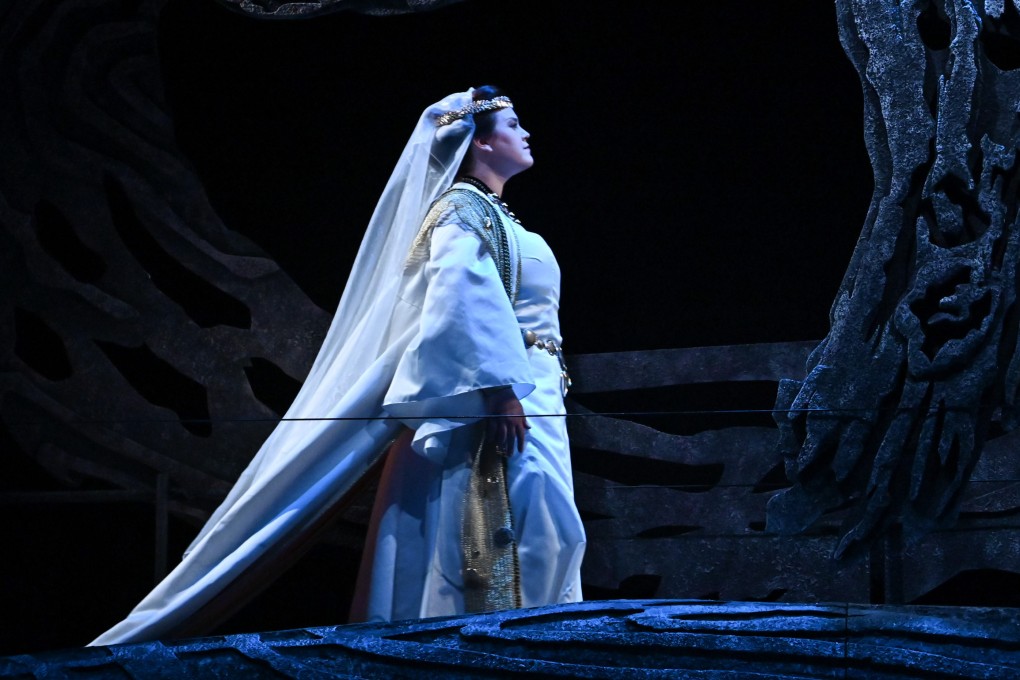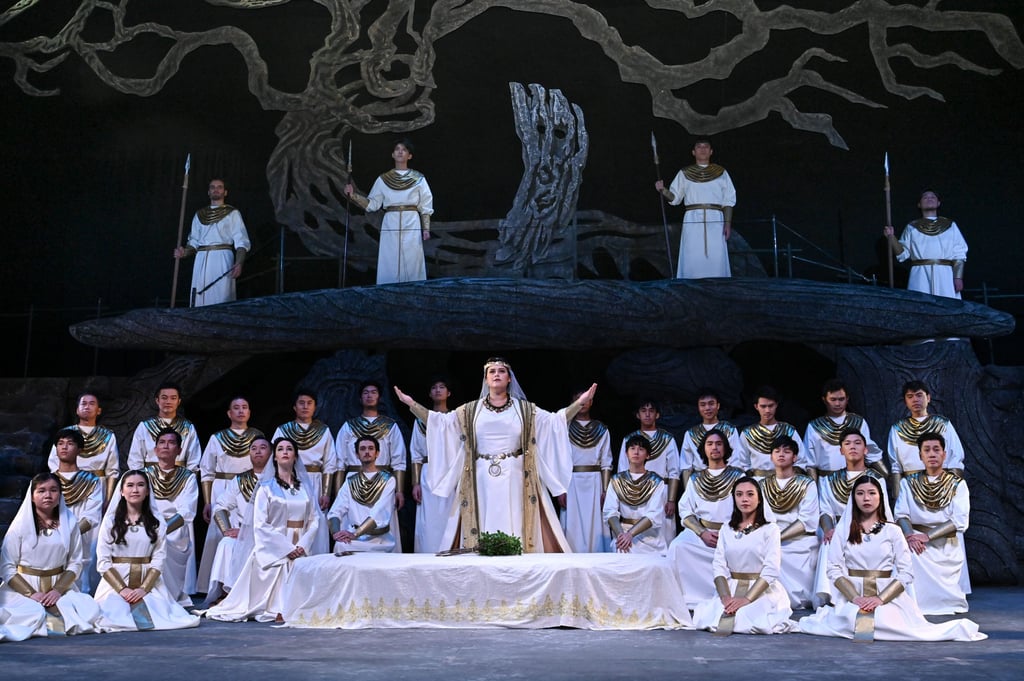Review | Musica Viva’s compelling Norma on opening night in Hong Kong needed greater balance between the opera leads
- Soprano Meryl Dominguez had formidable challenges as the lead in Norma, but mostly captured the essence of the character, dominating Act One
- What was needed was a greater balance between the three leads, as well as a greater undulation in tempo by the orchestra – and a more effective finale

Her first test was the stretch that begins with the famous aria Casta Diva and ends with our first foray into the character’s inner conflict in Fine al rito. Dominguez mostly captured the essence of these moments with a pleasing Sutherland-like purity in the upper and middle registers and depth in the lower.
Her sotto voce singing convincingly illustrated the demons that lay within. The control that she rendered in the tender moments was not always present when expressing fury, and there was some sketchy passagework – but the technical demands, admittedly, were forbidding.

The chorus lacked precision at times and was bottom heavy, but this was seemingly rectified in Act Two when the staging was reconfigured and the blending of voices improved.